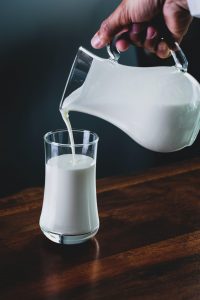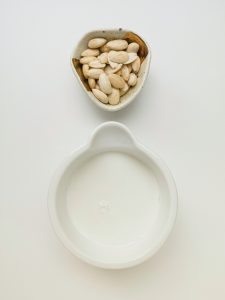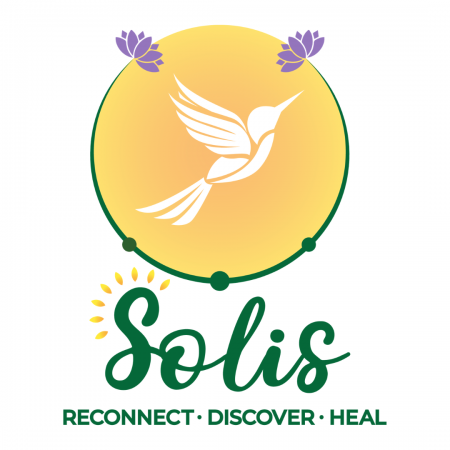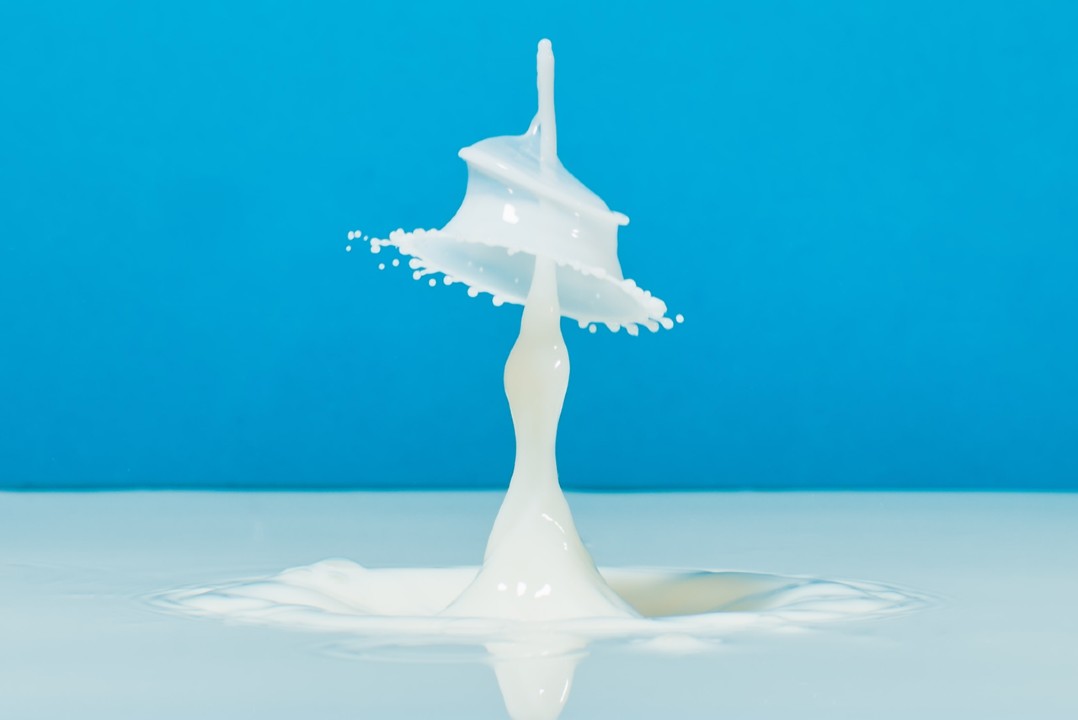Knowing what to include in your diet or not can be one of the most difficult and frustrating things after being diagnosed with cancer. There are so many different choices and differing opinions, even studies with varying results, making it very difficult to discern what might be the best path for you. When it comes to dairy and cancer and whether or not to allow it in your diet, we run into a similar problem, and the answer may differ if you choose a diet such as keto, where full fat dairy is often included (if this is what you choose, make sure your dairy is grass-fed and organic; at the very least, make it organic). If you aren’t choosing keto, the simple answer is no, don’t include it; but there is some leeway with dairy.
 Why might I want to limit my dairy consumption?
Why might I want to limit my dairy consumption?
Dairy has two proteins in it called casein and whey, and neither are good news for humans. Although it has been found to have some benefits, whey promotes the production of IGF-1 (Insulin Growth Factor), which promotes the creation of new cancer cells and increases their proliferation [1]. However, whey protein is a popular choice, particularly when trying to avoid weight loss during treatment, and there are some benefits seen in high-quality whey products (the key here being quality) such as stimulation of the immune system and anti-cancer activity. This article goes into more detail on the pros and cons of whey, so that you can make an informed decision on whether or not you want to include whey in your diet [2].
Casein is the one that I am personally more worried about. It is carcinogenic to humans and has been called the most relevant cancer promoter ever discovered because of how readily we consume it. It is also extremely difficult for humans to digest and the process is slow, causing many digestive issues like inflammation, bloating, and constipation (and we already know how important our gut health is to our immune functioning). This is because adults were never meant to drink milk, particularly that of another species, and so the enzyme needed to digest casein is no longer produced after 1-2 years of age [3]. In a study conducted by Dr. T. Colin Campbell, it was “[…] confirmed that casein does have this [cancer growth promoting] property (thus supporting the preliminary research of others) and, second, [they] learned how it does it (involving multiple ‘mechanisms’). In the traditional sense, the evidence was overwhelming. Using traditional science practice, we should be concluding that casein is a chemical carcinogen, perhaps the most relevant carcinogen that we consume” [4].
And casein is also responsible for the addictive nature of dairy, especially cheese where the water has been removed and casein is more concentrated. Digestion of casein results in the production of many chemicals, one of which is called casomorphin, an opioid peptide that can pass through the blood brain barrier and stimulate the pleasure centres of our brain, just like opioid drugs [3]! This peptide has even been linked to the development of brain disorders and disease [3], so in my opinion, it is definitely worth limiting or avoiding completely.
I know what you’re thinking, “But I love dairy!” I know, this one sucks. However, you do have some options!
 Your options when it comes to animal dairy:
Your options when it comes to animal dairy:
- If you must have dairy or you choose a keto diet, butter, sour cream, and heavy cream are naturally low in casein, but try to make it organic and grass-fed or you are getting synthetic hormones, antibiotics, and pesticides.
- Sheep, goat, and buffalo dairy are also naturally much lower in casein, so those are better choices as well.
Remember, even though these options are lower in casein, they still have levels of both whey and casein, so you should limit your intake if you decide that you want to avoid these proteins.
 Your non-dairy options:
Your non-dairy options:
If you decide that traditional dairy isn’t for you, there are some really great alternatives to animal dairy products. It has literally never been easier! It’s the golden age of modified diets.
- Nut milks, yogurts, and cheeses – organic for these is best, since nuts, like almonds, tend to be highly sprayed with glyphosate, and this pesticide is a well-proven carcinogen [5]. You also want to look for products without carrageenan. Carrageenan is a thickening agent derived from seaweed that, when it degrades, becomes very inflammatory and has been linked to the development of ulcers, IBS, and cancer [6]. The amount to which food-grade carrageenan is degraded by stomach acid is hotly debated, and it has been concluded that more studies are needed with humans to determine for sure whether it is a risk or not. For myself, I decided why risk it? This will of course be a personal decision for everyone, but my suggestion is to avoid carrageenan until the research is conclusive.
- Coconut yogurt and milk – my go-to because they are easy to find and delicious.
- Coconut cream – this is a fantastic replacement in any recipe (or your coffee) for heavy cream, and it also makes a great topping for berries and other desserts, almost like whipped cream.
- Coconut ice cream – there are lots of different brands out there, but you also have to watch out for sugar, as many brands still use cane sugar as their sweetener. My favourite brand is “Screamin’ Brothers” because they have a delicious selection of flavours, they use honey as their sweetener, and you can find it at many regular grocery stores.
- Soy “dairy” – If you read my recent blog on soy, you will know that I have started to include soy regularly in my diet, as more and more research is coming out in support of soy being protective for breast cancer and not promotive of it. Soy milk is usually now what I use for my matcha-turmeric lattes, homemade granola, etc., although I still prefer coconut yogurt and coconut cream over their soy counterparts and use both readily. If you would like to find out more about soy to inform your decision on whether to include it in your diet, you can find my blog on it here.
Whether you choose to include dairy in your diet or not, you have to feel confident and comfortable with it, as is true for anything in your protocol. If you are unsure, you can always discuss it with your nutritionist or naturopath, or feel free to reach out in the Solis Facebook group to see what others are doing or to ask any questions you may have about dairy (or cancer and diet in general) that may not have been answered in this post.
Happy Healing ❤️
References
- IGF-1, Diet and Cancer – https://www.vivahealth.org.uk/veganhealth/dont-feed-cancer/igf-1-diet-and-cancer
- Whey Protein and Cancer: Friend or Foe? – https://aor.ca/whey-protein-and-cancer-friend-or-foe/
- Casein – A Friend or Foe? Part 1 – https://www.anoasisofhealing.com/casein-a-friend-or-foe-part-1/
- Casein Consumption – https://nutritionstudies.org/casein-consumption/
- Exposure to glyphosate-based herbicides and risk for non-Hodgkin lymphoma: A meta-analysis and supporting evidence – https://www.sciencedirect.com/science/article/pii/S1383574218300887
- Is carrageenan safe to eat? – https://www.medicalnewstoday.com/articles/323117#research




0 Comments